第82章 CHAPTER XXXIII(1)
THE following winter, my friend, George Cayley, was ordered to the south for his health. He went to Seville. I joined him there; and we took lodgings and remained till the spring.
As Cayley published an amusing account of our travels, 'Las Aforjas, or the Bridle Roads of Spain,' as this is more than fifty years ago - before the days of railways and tourists - and as I kept no journal of my own, I will make free use of his.
A few words will show the terms we were on.
I had landed at Cadiz, and had gone up the Guadalquivir in a steamer, whose advent at Seville my friend was on the look-out for. He describes his impatience for her arrival. By some mistake he is misinformed as to the time; he is a quarter of an hour late.
'A remnant of passengers yet bustled around the luggage, arguing, struggling and bargaining with a contentious company of porters. Alas! H. was not to be seen among them. There was still a chance; he might be one of the passengers who had got ashore before my coming down, and I was preparing to rush back to the city to ransack the hotels. Just then an internal convulsion shook the swarm around the luggage pile; out burst a little Gallego staggering under a huge British portmanteau, and followed by its much desired, and now almost despaired of, proprietor.
'I saw him come bowling up the slope with his familiar gait, evidently unconscious of my presence, and wearing that sturdy and almost hostile demeanour with which a true Briton marches into a strange city through the army of officious importunates who never fail to welcome the true Briton's arrival. As he passed the barrier he came close to me in the crowd, still without recognising me, for though straight before his nose I was dressed in the costume of the people.
I touched his elbow and he turned upon me with a look of impatient defiance, thinking me one persecutor more.
'How quickly the expression changed, etc., etc. We rushed into each other's arms, as much as the many great coats slung over his shoulders, and the deep folds of cloak in which I was enveloped, would mutually permit. Then, saying more than a thousand things in a breath, or rather in no breath at all, we set off in great glee for my lodgings, forgetting in the excitement the poor little porter who was following at full trot, panting and puffing under the heavy portmanteau. We got home, but were no calmer. We dined, but could not eat.
We talked, but the news could not be persuaded to come out quick enough.'
Who has not known what is here described? Who does not envy the freshness, the enthusiasm, of such bubbling of warm young hearts? Oh, the pity of it! if these generous emotions should prove as transient as youth itself. And then, when one of those young hearts is turned to dust, and one is left to think of it - why then, 'tis not much comfort to reflect that - nothing in the world is commoner.
We got a Spanish master and worked industriously, also picked up all the Andalusian we could, which is as much like pure Castilian as wold-Yorkshire is to English. I also took lessons on the guitar. Thus prepared, I imitated my friend and adopted the ordinary costume of the Andalusian peasant: breeches, ornamented with rows of silvered buttons, gaiters, a short jacket with a red flower-pot and blue lily on the back, and elbows with green and scarlet patterns, a red FAJA or sash, and the sombrero which I believe is worn nowhere except in the bull-ring. The whole of this picturesque dress is now, I think, given up. I have spent the last two winters in the south of Spain, but have not once seen it.
It must not be supposed that we chose this 'get-up' to gratify any aesthetic taste of our own or other people's; it was long before the days of the 'Too-toos,' whom Mr. Gilbert brought to a timely end. We had settled to ride through Spain from Gibraltar to Bayonne, choosing always the bridle-roads so as to avoid anything approaching a beaten track. We were to visit the principal cities and keep more or less a northerly course, staying on the way at such places as Malaga, Cordova, Toledo, Madrid, Valladolid, and Burgos. The rest was to be left to chance. We were to take no map; and when in doubt as to diverging roads, the toss of a coin was to settle it. This programme was conscientiously adhered to.